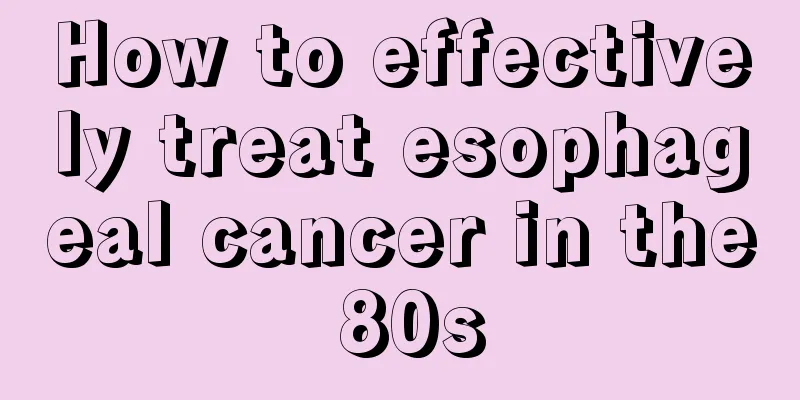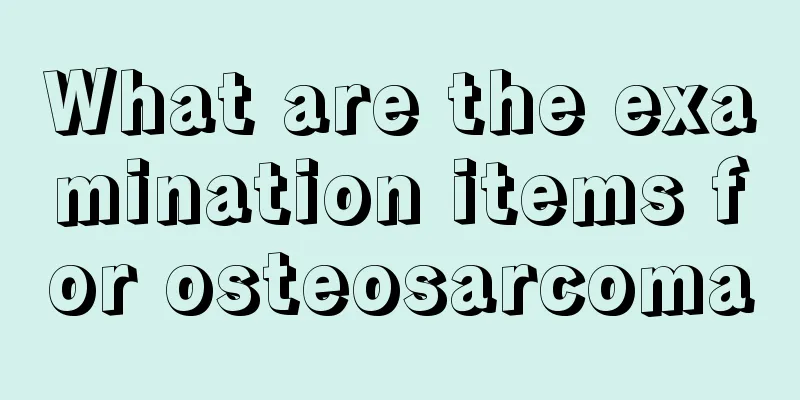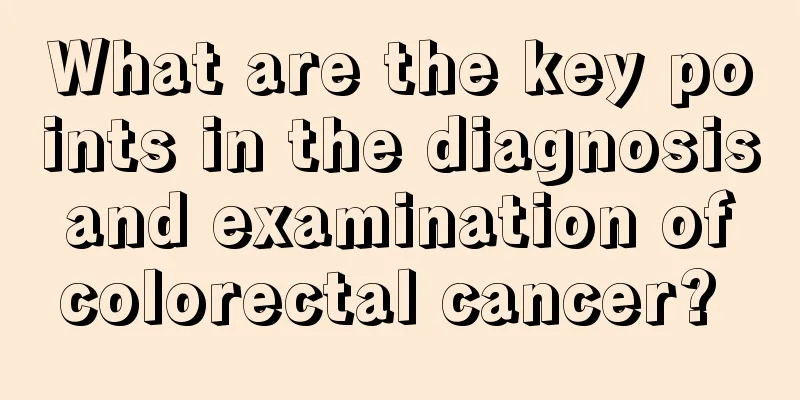How to effectively treat esophageal cancer in the 80s

|
The treatment effect of esophageal cancer in the 80s depends on comprehensive treatment, including surgery, radiotherapy, chemotherapy and nutritional support, and a personalized plan should be formulated according to the patient's physical condition. The treatment of esophageal cancer needs to be combined with the patient's age, tumor stage and overall health status. Elderly patients need to pay more attention to treatment safety and quality of life. 1. Surgery is one of the main treatments for esophageal cancer and is suitable for early-stage patients. For patients over 80 years old, cardiopulmonary function and surgical tolerance need to be assessed. Common surgical methods include esophagectomy, minimally invasive esophagectomy and esophageal reconstruction. If the patient's physical condition allows, surgery can effectively remove the tumor and prolong survival. 2. Radiotherapy is suitable for patients who cannot undergo surgery or postoperative adjuvant therapy. For elderly patients, radiotherapy can relieve symptoms such as dysphagia and improve the quality of life. Radiotherapy methods include external beam radiotherapy, internal beam radiotherapy and stereotactic radiotherapy. Radiotherapy should pay attention to protecting the surrounding normal tissues and reducing side effects. 3. Chemotherapy is often used for advanced esophageal cancer or postoperative adjuvant therapy. Commonly used chemotherapy drugs include cisplatin, fluorouracil and paclitaxel. For elderly patients, the chemotherapy dose needs to be adjusted to avoid overtreatment. Chemotherapy can shrink tumors and relieve symptoms, but liver and kidney function and blood routine tests need to be closely monitored. 4. Nutritional support is an important part of the treatment of esophageal cancer. Patients often suffer from malnutrition due to dysphagia and need to supplement energy through nasogastric tube, gastrostomy or intravenous nutrition. Dietary recommendations include high-protein liquid food, nutritional supplements and small and frequent meals. Good nutritional status helps improve treatment tolerance and quality of life. 5. Psychological counseling is particularly important for elderly patients. The diagnosis and treatment of esophageal cancer may lead to emotional problems such as anxiety and depression, which require psychological counseling, family support and relaxation training to relieve psychological stress. A positive attitude helps improve treatment outcomes and quality of life. The treatment of esophageal cancer in patients over 80 years old requires comprehensive consideration of surgery, radiotherapy, chemotherapy and nutritional support, and the development of a personalized plan. Elderly patients need to pay more attention to treatment safety and quality of life, and through multidisciplinary collaboration, improve treatment effects, prolong survival and improve quality of life. |
<<: Is the symptom of throat discomfort in thyroid cancer in the middle or late stage?
>>: How long can one live if he can still eat in the late stage of esophageal cancer
Recommend
Can neurasthenia and insomnia heal itself?
There are many reasons for insomnia, such as stre...
How many years can one live with advanced ovarian cancer
Studies have shown that there are many factors th...
How to cook dried chestnuts
No matter what type of nuts it is, eating more nu...
What to do if your hair is rough and frizzy
Human hair is quite important because the overall...
What are the most effective treatments for lymphoma
The incidence of lymphoma has been very high in r...
How to use acne needle
Smooth and delicate facial skin is perfect and wh...
What are the acupuncture points for kidney tonification massage
Kidneys are the capital of the new generation of ...
It turns out that there are 5 types of harm caused by smoking
I believe that everyone is familiar with the sayi...
What are the general methods for diagnosing glioma?
Gliomas originate from glial cells in the brain a...
Treatment of primary constipation
I believe everyone knows about the disease called...
Small blisters on fingers
Many people cannot stand the hot weather in the s...
How to remove the sweat hair on the lips, three tricks can solve it
Women are all very concerned about beauty. If the...
What will happen to Guillain-Barré syndrome
Because Guillain-Barré syndrome is an immune dama...
Specific method of foaming dried sea cucumber
Sea cucumber is a very nutritious seafood. Eating...
A warning to "White Bone Demon" to eat the right dinner and stay away from stomach cancer
After a busy day, many white-collar workers in ci...









